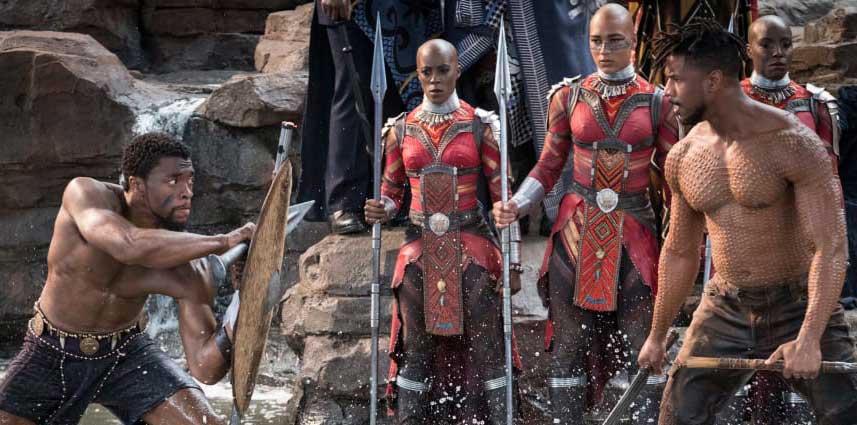Marvels blockbuster movie celebrates black excellence
GOSEGO MOTSUMI
Marvel’s latest comic adaptation film, Black Panther has been one of the most anticipated films of 2018. The collective hype for the film since its announcement has been absolutely explosive and the film premiered in Botswana on 16th February 2018 at New Capitol Cinemas. Courtesy of Multichoice Botswana, the premiere featured a red carpet with a dress code theme of ‘African Regal’ to show off another important aspect of the film, fashion. Movie buffs came out draped in African inspired outfits an inspiration that was drawn from the costumes in the film’s world of Wakanda a mythical African country with a startling lasting impact.
As Black Panther roared its way into theaters around the world it was a proud and important moment as it raised hope for a new wave of interest in commercial films telling black stories with predominantly black casts. The fact that a film dominated by black casts with a black superhero in the lead role can have this much impact clearly indicates that black orientated films which have been shunned upon have great potential and black excellence should be celebrated. According to research, for many years studio executives believed that white movie enthusiasts would not come out to a black driven film and that black stars do not fare well internationally but as it turns out with Black Panther minorities now help drive the box office and it is believed to not be a once off thing.
Moreover, Black Panther prides itself with true representation of African nations and tribes; the Wakandan dress, architecture, and dialect pull from Mali, Lesotho, Nigeria, Kenya, Ethiopia, and Tanzania. The on-screen spoken language of the kingdom of Wakanda is isiXhosa, the melodic South African language known for its distinctive clicks. It’s one of the ways the film is trying to ensure its authenticity. Moreover, CNN reported that Okavango and Botswana provided inspiration for Black Panther. Costume designer Ruth Carter said her contribution was what she called the Okavango pattern. Looking at the Civil War suit they had a texture similar to the sacred Geometry by using pyramids, a triangle used in so much art throughout the continent, especially in the region of Mali and Botswana.
Another impressive feature of the film is the representation of black women revered and respected because of their prowess and wit. The film boasts powerful female stars who are beautiful and badass and often steal the show even through the epic fight scenes. Rising star Letitia Wright plays T’Challa’s teenage sister, Shuri, the brain behind all the tech in Wakanda, the most technologically advanced country on Earth. Okaye (played by The Walking Dead’s Danai Gurira is head of the king’s all female protective taskforce and Nakia (Lupita Nyong’o)is a Wakandan spy known as a War Dog’. Above all the film shows Africa as a place of power, influence and innovation which stokes curiosity and builds a new perspective about the African continent.
The review intentionally left out a few spoiler alerts for those who have not seen the movie but I would encourage everyone to go and see Black Panther due to its story’s lasting impact.

